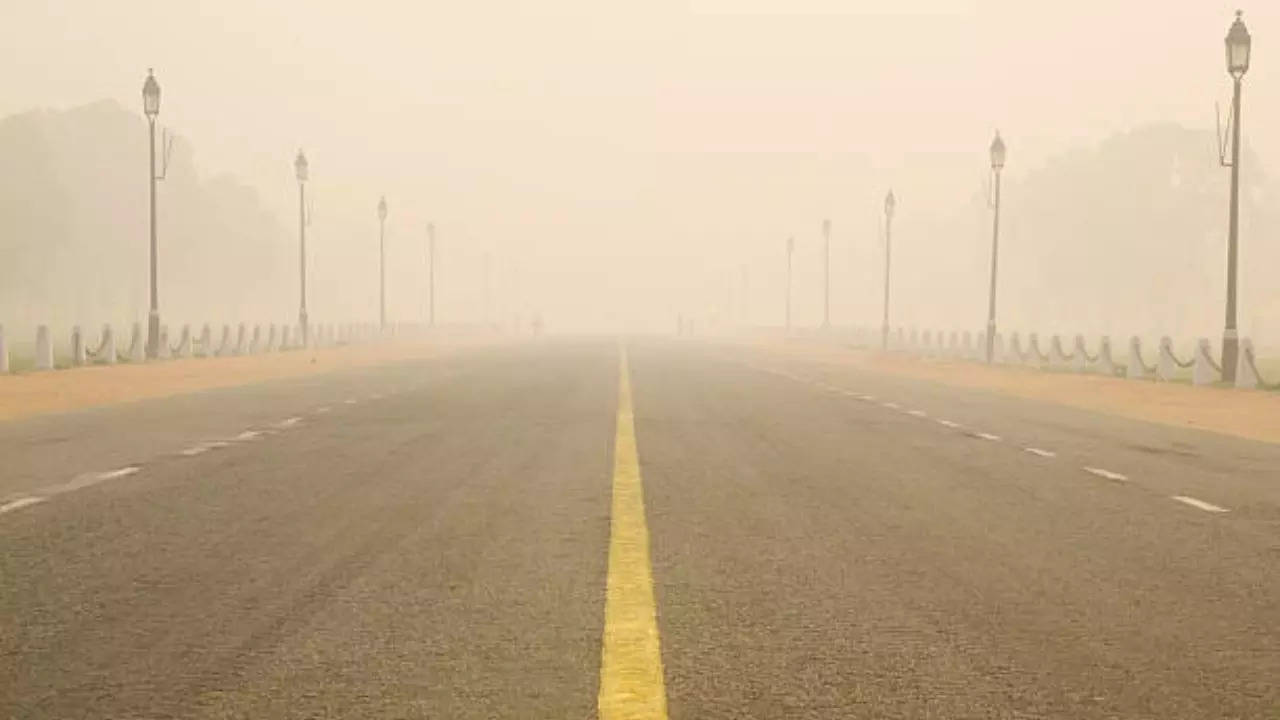Table of Contents

New Delhi: As air quality levels in the National Capital worsen day by day, Delhi’s AQI entered the ‘Severe+’ category on Sunday, according to the Central Pollution Control Board (CPCB). In view of the deteriorating situation, the Indian Meteorological Department (IMD) has issued an orange alert for fog in the capital city on Monday. Today, the weather prediction indicates very dense fog. The maximum temperature is expected to be 27 degrees Celsius, while the minimum temperature is expected to be 14 degrees Celsius. The relative humidity oscillated between 86 percent and 94 percent.
Delhi Weekly Weather Forecast
The city is expected to experience a week full of fog with varied temperatures.
November 19, 20, and 21: Moderate fog is predicted. The maximum temperature is expected to range between 27 degrees Celsius and 28 degrees Celsius, while the minimum temperature will remain constant at 13 degrees Celsius.
November 22 and 23: Foggy conditions will persist. The maximum temperature will range between 29 degrees Celsius and 30 degrees Celsius, while the minimum temperature is expected to remain constant at 15 degrees Celsius.
IndiGo Issues Traffic Advisory
IndiGo Airlines has issued a travel advisory for passengers due to fog conditions in the national capital. In a post on X, the airline recommended passengers allow extra travel time and check flight status before starting their journey.
"Fog is currently affecting visibility in Delhi, which may result in slow-moving traffic and delays in flight schedules. We recommend allowing extra travel time and checking flight status before starting your journey. Safe travels!" the post mentioned.
GRAP-IV in Delhi
Earlier, the Delhi government directed the implementation of Stage IV of the Graded Response Action Plan (GRAP) from Monday after the Air Quality Index in the national capital crossed the 450 mark on Sunday, falling into the ‘Severe+’ category. Delhi’s daily average AQI rose sharply to 441 by 4 PM on Sunday and further escalated to 457 by 7 PM, according to data from the Central Pollution Control Board (CPCB). This severe spike prompted an emergency meeting of the GRAP Sub-Committee.
(With inputs from PTI)

